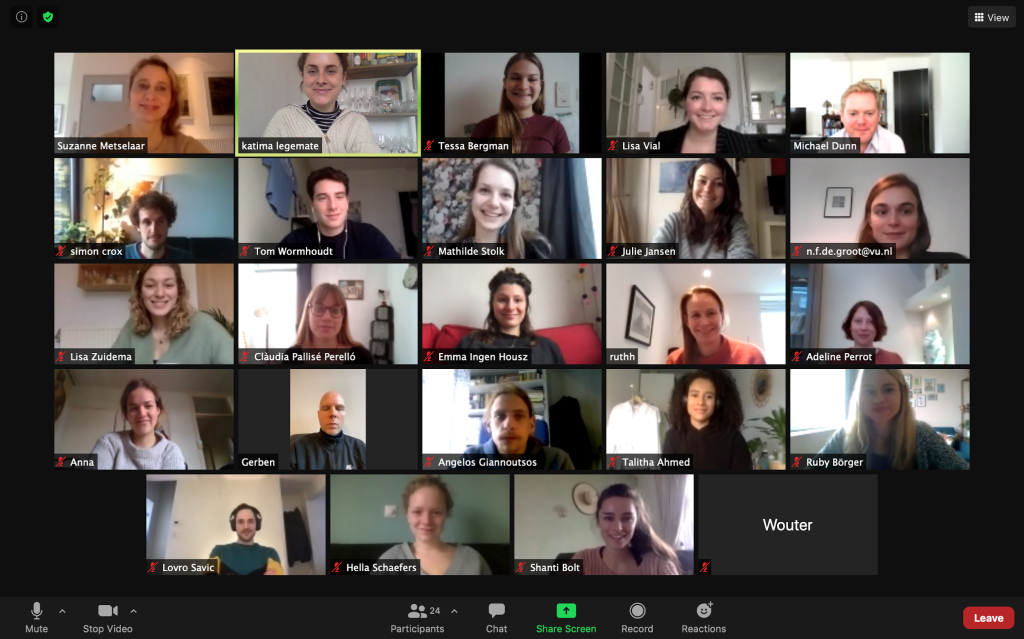
In Conversation: Dr Halina Suwalowska (University of Oxford) meets Dr Nina Liebenburg (University of Cape Town)
‘Beyond the Body: a portrait of autopsy’ is an art exhibition inspired by narratives of people involved in post-mortem procedures, depicting ethical dilemmas presented by the practice of examining the body across different cultures. Recognised as ‘learning from the dead’, autopsy has been of significant importance to medicine and science, but often a painful concern of the living.
The exhibition is a collaborative project between Dr Halina Suwalowska (Ethox Centre, Wellcome Centre for Ethics and Humanities, University of Oxford) and artist Anna Suwalowska (Royal College of Art).
The artwork inspired by Halina’s research, interprets the difficult questions posed and brings new perspectives on autopsy. Here art explores a range of viewpoints; A pathologist asking if the rights of the living to know the cause of death supersede the rights of the deceased to keep their secrets; A Buddhist priest discussing five elements determining stages of death, but also the universe; A scientist introducing less invasive autopsy in children to minimise body disfigurement, describing difficult conversations with grieving parents, amongst others.
In April 2022 ‘Beyond the Body’ was shown at the Michaelis School of Fine Art at the University of Cape Town as part of the ‘Diagnosing Loss’ exhibition, curated by Dr Nina Liebenberg (The Centre for Curating the Archive, University of Cape Town).
The following transcript is a conversation between Halina and Nina:
Halina Suwalowska (HS): What is the ‘Diagnosing Loss’ exhibition about? How did you come up with the concept and title of the exhibition?
Nina Liebenberg (NL): ‘Diagnosing Loss’ grappled with ideas of loss as it is understood and studied by a wide range of disciplines. It took inspiration from the artwork created for the exhibition ‘Beyond the Body: a portrait of autopsy’.
The exhibition also brought together several artworks from Michaelis School of Fine Art staff, students, and graduates, along with objects sourced from the university’s Physics, Pathology, Mathematics, Chemistry, Special Collections, Anatomy, and Biological Sciences Departments.
By combining disciplinary objects (used in the various science and medical curricula) with a selection of artworks that either spoke to the theme of loss or used scientific material as subject matter, the exhibition allowed certain previously obscured qualities to surface in the disciplinary materials (affective and poetic ones, for instance): a small non-descript anatomical model of the ‘empty’ space of the brain evoked the loss of memory and the devastation of Alzheimer’s; whilst a mathematical equation representing what one ‘loses’ by predictions not coinciding with targets (in the context of machine learning), paired with a
sculpture of an abdomen from which a shower of white handkerchiefs spilled to the ground, enabled a viewer to reflect on (and perhaps ridicule) the dated ‘body as machine’ mantra of science. The title was a play on the impossibility of understanding/navigating/measuring/traversing/estimating/figuring/calculating or
representing loss. (Try as we might…)
‘Diagnosing Loss’ also serendipitously coincided with another exhibition that opened a week later in the downstairs gallery on the Michaelis Fine Art Campus. ‘Of Smoke and Ash’, curated by Jade Nair and Duane Jethro, marked the anniversary of the devastating fire that destroyed UCT’s African Studies Library in April of 2020. Because of their close proximity, ideas of loss resonated between these two shows during the two weeks they ran concurrently.
(HS) How has the ‘Beyond the Body’ exhibition inspired the creation of the ‘Diagnosing Loss’ exhibition?
(NL) The ‘Beyond the Body’ exhibition focuses on the procedure of the autopsy, and it grapples with how scientific and ethical standards on this procedure have changed over time, and the dilemmas it poses to different cultures…For me, the paintings also spoke of the autopsy as a last act of trying to understand or grasp loss – an attempt at reasoning why a life has been lost, or a last fortress against the onslaught of grief and the absence of reason that accompanies death.
(HS) How did you curate the exhibition? Please tell us more about some of the objects and artworks you selected.
(NL) The object collections from across the university have been an enduring source of inspiration for me over my many years at UCT. When planning ‘Diagnosing Loss’ I had an initial list of potential objects I thought would be relevant to the theme, and would resonate with the artworks I chose to include.
These included the neck support from the Pathology Learning Centre. Made from oak, it was used to support the neck during a post-mortem examination. It is literally invested with traces of hundreds of losses – its scarred and worn surface analogous to a wounded, ill and traumatised body.
In addition to the neck support, the letters written to Dr Chris Barnard by children, after he performed the first heart transplant in Grootte Schuur Hospital on 3 December 1967 also seemed relevant. In one, a little girl asks him how to perform a heart transplant on the dead dove she found in her garden, while in another a girl relates how she caught a fish she thought was dead, but whose heart started beating again a few hours later: ‘Can you explain that?’ she asks ‘If a doctor says you’re dead and they take out your heart but it is still beating, are you dead or alive?’.
I also found an array of new objects I didn’t know existed, including a demonstration model in the Physics department that weighs air, and I sourced a new mathematical equation on loss from the Head of Mathematics, Professor Daya Reddy.
The artworks on show were gathered from postgraduates, staff and previous students and they were works that I either knew from memory or new ones I commissioned from staff or colleagues that I knew worked with medical or scientific themes or subject matter.
(HS) The opening talk took place at the Anatomy Lecture Theatre. Please tell us a bit more about the history of that place.
(NL) The Anatomy Lecture Theatre was used to teach anatomy and physiology to those first medical undergraduates in 1912. The cadavers that were dissected in the theatre entered the building from the back, where a lift would take it to the uppermost floor. It would then be wheeled into the lecture hall through an entrance on the opposite end of the room from the student entrance.
Students did not sit during these classes, but stood on steep steps above their lecturer to get a good view of the dissection. In the many years since then, the layout of the theatre has remained very similar. The steep incline was however fitted with chairs, but the two entrances remain in use (albeit for very different purposes!). We tend to enjoy the look of horror on our students’ faces when we tell them about the history of the building and the lecture theatre they are sitting in, at the start of every year!
(HS) What role does art play in medical and scientific projects? What is the value of having projects intersecting art, medicine and science? How can art contribute to initiating difficult conversations about death or loss?
(NL) In most universities, research occurs within specialised departments and rarely leaves these spaces. The curatorial, because of its public-facing nature, offers a new kind of academic ecology, allowing for the output of these environments to be translated and disseminated into new spaces and to diverse audiences. As such, it provides academics with new opportunities to address their publics. The method also generates a potentially productive space in which to think about how different forms of knowledge are shaped. In my own experience, the value of extending frameworks of knowing to include the
unexpected and the novel, has proven to be of immense value to both the sciences and the humanities, and confirms my conviction that projects which foster these engagements, are imperative tools for facing an uncertain future.
‘Diagnosing Loss’ was shown at the University of Cape Town from 15th April to 29th April 2022 and curated by Dr Nina Liebenberg from The Centre for Curating the Archive, UCT. ‘Beyond the Body’ continues to tour medical institutions around the world.
Please get in touch if you’d like more information on either of these exhibitions: weh@bdi.ox.ac.uk
Instagram: @anna_suwalowska



